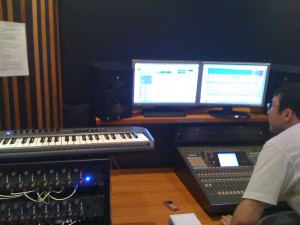
Since CPU power has been rising in the digital age, It seems to me that every step in the process from recording to producing an audio CD can be accurately done by a computer and a sound card. Some people believe that digital gear can never sound as good as their analogue counterpart because there is something inherent in the nature of the analogue circuit that just cannot be replicated in digital format. This is just not true! However, it might seem this way because there aren’t good enough DSP routines (in audio plugin formats) which accurately simulate the non-linear behaviour of certain analogue circuits.
Of course, the method you use to get the sound waves into digital format is an artform, using appropriate microphone techniques and high-quality preamplifiers (unless you are using virtual synthesis to create your sound). The mixing and editing of recordings is also a creative process because it depends on subjective decisions on how pleasing the sound is to the human ear.
Any successful software for digital processing must be easy for an operator to use, and transportable between studios or live gigs.
However, even with an easy-to-use interface, the actual processing of sound samples must be done properly, accurately and with low latency to acheive the desired result of simulating expensive analogue equipment, or just making a good sound. This is where audio plugins come into play. I believe that with the right mathematics, operating system kernel, and cpu power, all expensive outboard studio gear can eventually be made obselete for recording purposes (except mics and preamps of course), including clock sources, sample rate converters, and sound processing units. This means less loose patch leads in the studio, and less maintenance of analogue equipment.
There are plenty of journal articles documenting algorithms for DSP, it’s a matter of finding a programmer who understands the nature of sound, has a creative musical edge, and can translate his knowledge and the knowledge of others into working code.